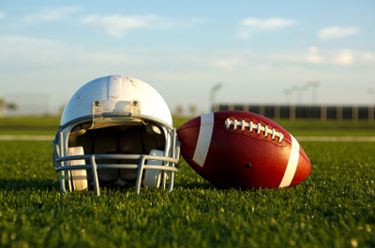Top Class Actions’s website and social media posts use affiliate links. If you make a purchase using such links, we may receive a commission, but it will not result in any additional charges to you. Please review our Affiliate Link Disclosure for more information.

Plaintiff Larry Carr, a star linebacker for the first Brigham Young University football team to earn a bowl invitation, is suing BYU over claims that for decades the private school failed to educate players about the effects of concussions.
The proposed class action lawsuit, filed July 7 in Colorado federal court, names BYU, the Colorado-based Western Athletic Conference and the NCAA as defendants and seeks $5 million in damages.
Carr, now a California resident, played for the BYU Cougars from 1971 to 1974 and was the leading tackler for the 1974 team that won the WAC championship and played in the Fiesta Bowl.
According to the lawsuit, Carr was involved in 2,000 to 3,000 “violent hits to the head” during practices and games in his BYU career and was taught to “always lead with his head.”
He alleges on behalf of himself and a proposed Class of former players that while BYU, the NCAA and WAC “knew about the harmful and devastating effects of these sub-concussive and concussive injuries, they actively concealed these facts from student-athletes and the public.”
Carr allegs he sustained “a significant number of concussions,” resulting in “permanent brain damage” and “emotional distress,” according to the proposed class action lawsuit.
The NCAA presents itself as a governing body of student-athletes to protect them and advance their goals. Meals are controlled, the interaction between recruits and university are limited, and the organization monitors players who may be receiving payment for autographs, all in the name of protection for the student-athlete. Yet, the organization remains silent on the issue of player safety, Carr’s lawsuit contends.
According to the class action lawsuit, repetitive trauma to the head has been shown to cause memory loss, dementia and chronic traumatic encephalopathy (CTE), among other health related issues.
Carr’s lawsuit is not the only case the NCAA is facing regarding former football players allegedly suffering from CTE or traumatic brain injuries.
Ex-Wake Forest University full back and tight end Christopher Burkholder, who played from 1996-1999, recalls hitting his head so hard during drills and practices he would “see stars and have throbbing pain in his head.”
Burkholder filed his class action lawsuit against WFU, the NCAA and the Atlantic Coast Conference on July 7, 2016, claiming that as a result of a number of concussion during his time playing football at Wake Forest, he now suffers from frequent light sensitivity and has had ongoing treatment for sleep disorders among other symptoms.
Additionally, Stanford University has been named as a defendant in another similar proposed class action lawsuit filed by plaintiff David Burns.
Burns, who played football as a strong safety and wide receiver for Stanford from 1972-1974, claims he sustained consistent and significant head blows in practice and was never provided any type of appropriate medical treatment during these incidences.
Over time, Burns says he began to experience the consequences of these concussions including an ongoing struggle with memory loss, impulse problems, severe fatigue, sleeping problems, and other debilitating issues.
Carr, Burkholder, and Burns’ proposed class action lawsuits all similarly allege that their respective school’s football programs failed to provide concussion management protocols or policies of any kind to address and treat concussions sustained by student-athletes during practice and in games.
All three are seeking class certification for their separate lawsuits and have requested jury trials.
Carr is represented by Jay Edelson, Benjamin H. Richman and Rafey S. Balabanian of Edelson PC; and and Jeff Raizner of Raizner Slania LLP.
Burkholder is represented by William Winingham of Wilson Kehoe Winingham LLC; Jay Edelson, Rafey S. Balabanian and Benjamin H. Richman of Edelson PC; and Jeff Raizner of Raizner Slania LLP.
Burns is represented by Stewart R. Pollock and Rafey S. Balabanian of Edelson PC; and Jeff Raizner of Raizner Slania LLP.
The BYU NCAA Football Players Concussion Class Action Lawsuit is Larry Carr v. Brigham Young University, et al., Case No. 1:16-cv-1732, in the U.S. District Court for the District of Colorado.
The Stanford University NCAA Football Players Concussion Class Action Lawsuit is David Burns v. Stanford University, et al., Case No. 3:16-cv-3805, in the U.S. District Court for the Northern District of California, San Francisco Division.
The Wake Forest University NCAA Football Players Concussion Class Action Lawsuit is Christopher Burkholder v. Wake Forest University, et al., Case No. 1:16-cv-1812, in the U.S. District Court for the Southern District of Indiana.
ATTORNEY ADVERTISING
Top Class Actions is a Proud Member of the American Bar Association
LEGAL INFORMATION IS NOT LEGAL ADVICE
Top Class Actions Legal Statement
©2008 – 2024 Top Class Actions® LLC
Various Trademarks held by their respective owners
This website is not intended for viewing or usage by European Union citizens.














